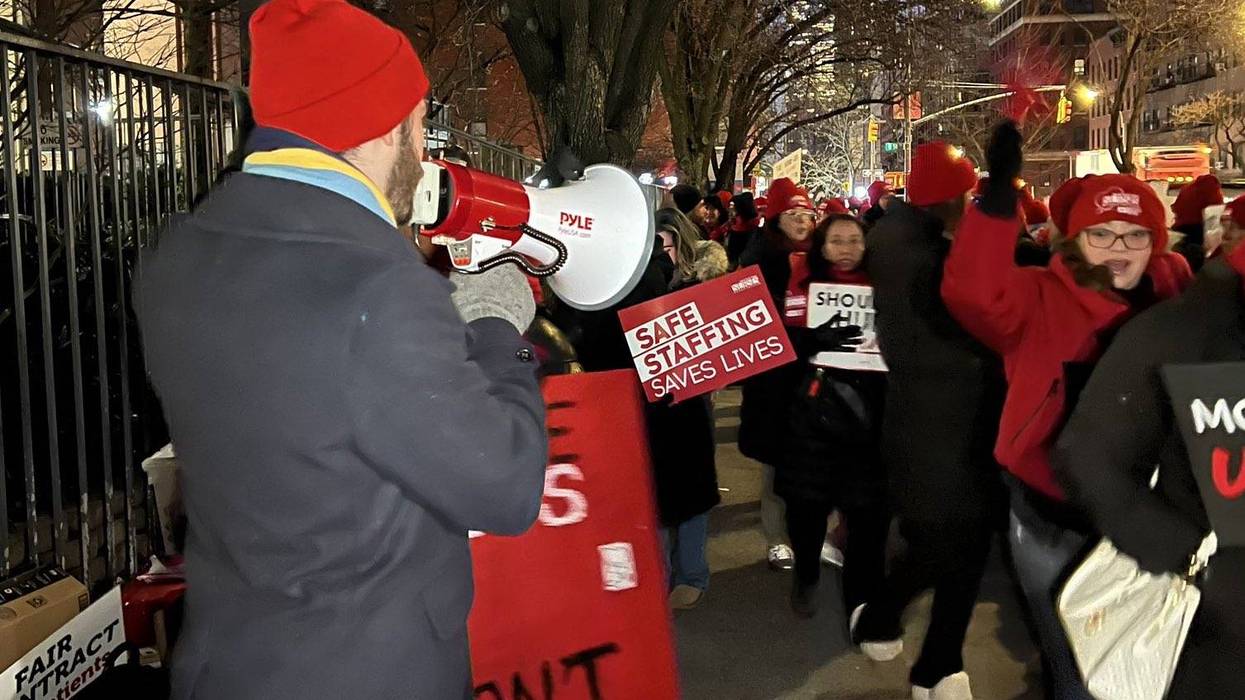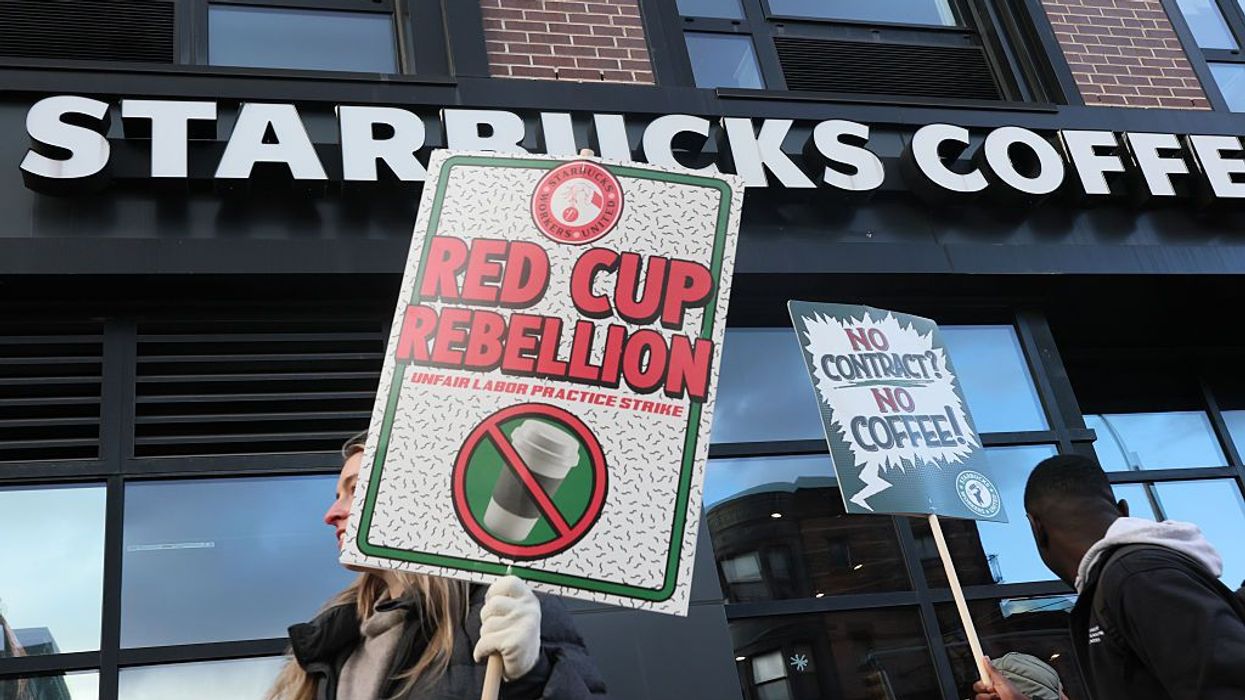Largest Nurses Strike in NYC History as Nearly 15,000 Healthcare Workers Hit the Picket Line
"No nurse should be asked to accept less pay, fewer benefits, or less dignity for doing lifesaving work," said New York City Mayor Zohran Mamdani.
Thousands of nurses are hitting the picket lines in what will be the largest nurses strike in the history of New York City.
The New York State Nurses Association (NYSNA) on Monday announced that nearly 15,000 nurses at Mount Sinai Hospital, Mount Sinai Morningside and West, Montefiore, and NewYork-Presbyterian are going on strike after "greedy hospital management at these wealthy private hospitals have given frontline nurses no other choice."
The NYSNA posted a long list of sticking points on contract negotiations, including "safe staffing for our patients, protections from workplace violence, and healthcare for frontline nurses."
NYSNA president Nancy Hagans said that any patients in need of care at these hospitals should enter them, emphasizing that "going into the hospital to get the care you need is not crossing our strike line." She also encouraged patients to join the picket line with the nurses after receiving care.
New York City Mayor Zohran Mamdani spoke out in solidarity with the striking nurses, while also emphasizing the importance of "ensuring New Yorkers have the care they need... especially during flu season."
"No New Yorker should have to fear losing access to healthcare," Mamdani wrote in a social media post. "And no nurse should be asked to accept less pay, fewer benefits, or less dignity for doing lifesaving work. Our nurses have kept this city alive through its hardest moments. Their value is not negotiable."
Sen. Bernie Sanders (I-Vt.) also expressed support for the striking nurses, while denouncing "NewYork-Presbyterian, Montefiore, and Mount Sinai hospitals for being willing to spend millions on replacement nurses rather than bargain for a fair contract."
The NYSNA also got a boost from 1199SEIU, which is the largest union of healthcare workers in New York.
"At this time of unprecedented cuts to Medicaid and other healthcare programs by Republican leaders in Washington, DC healthcare workers should not bear the brunt of funding shortfalls," said 1199SEIU president Yvonne Armstrong. "More than ever, we need stability in our healthcare system, which means investing in the type of good healthcare jobs which are fundamental to the wellbeing of caregivers and the communities they serve."
Armstrong also called on the hospitals to "bargain in good faith with NYSNA, refrain from committing unfair labor practices, and sign fair contracts that honor nurses’ contributions."


